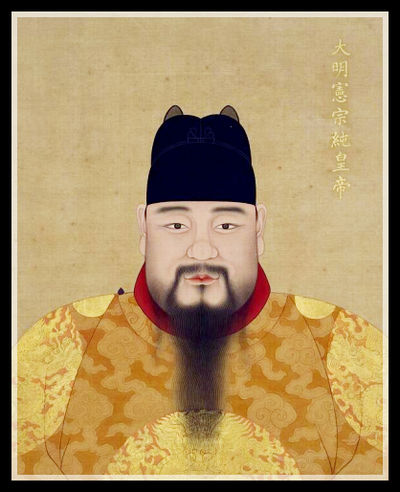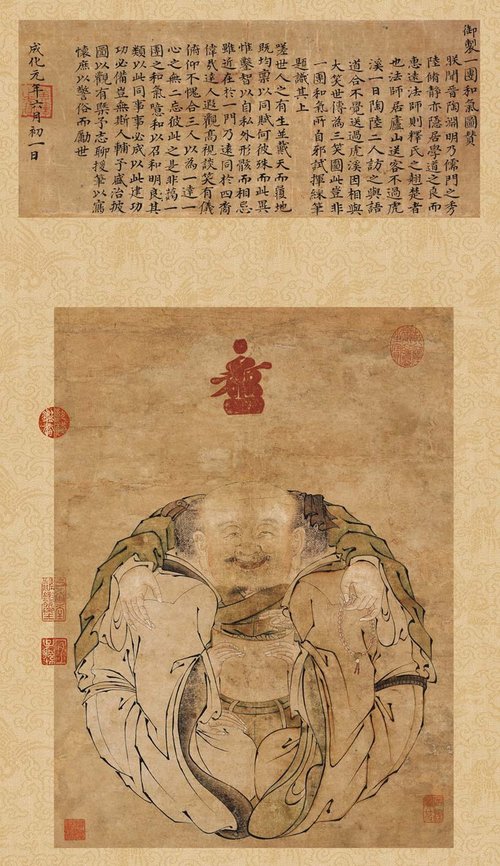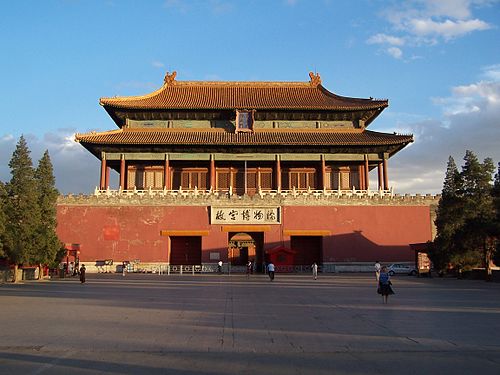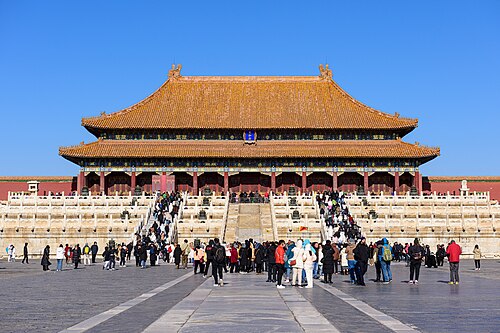
Chenghua Emperor
1447
- 1487
The Chenghua Emperor (9 December 1447 – 9 September 1487), also known by his temple name as the Emperor Xianzong of Ming, personal name Zhu Jianshen, changed to Zhu Jianru in 1457, was the ninth emperor of the Ming dynasty, reigning from 1464 to 1487. He succeeded his father, Emperor Yingzong.
Zhu Jianshen was born in 1447 as the son of Emperor Yingzong. When he was only two years old, his father was captured by the Mongols during the Battle of Tumu Fortress, and his uncle ascended the throne as the Jingtai Emperor. During this time, Zhu Jianshen was appointed as crown prince, but later his uncle removed him from the position. Zhu Jianshen was not restored as crown prince until 1457, when Emperor Yingzong overthrew the ill Jingtai Emperor in a coup and reascended the throne.
The Chenghua Emperor began his reign at the age of sixteen. During the initial years of his reign, he implemented a new policy that included tax cuts and a focus on strengthening the state's power. However, as time passed, the positive impact of these changes diminished. In the later years of his rule, the Forbidden City was dominated by eunuchs, particularly the notorious Wang Zhi and Liang Fang. The emperor's preference for favorites over promoting capable individuals gradually eroded the positive aspects of his rule. This resulted in widespread corruption and the enrichment of his supporters at the expense of the state treasury. Peasant uprisings erupted throughout the country and were brutally suppressed. The emperor ruled with increasing autocracy, bolstering the secret police to monitor the sentiments of the people. Wan Zhen'er, a palace lady who was 17 years older than the Chenghua Emperor, held significant sway over him and eventually became his favorite. This was especially true after she gave birth to a son in 1464, although the child died shortly after. Despite this, Lady Wan maintained her hold over the emperor and his harem. She used her loyal eunuchs to force other women to have abortions if they became pregnant with the emperor's child, and she did not hesitate to resort to poisoning mothers and their children. It was not until 1475 that the emperor discovered the existence of his five-year-old son, Zhu Youcheng, who had been kept hidden until then. Zhu Youcheng later succeeded him as the Hongzhi Emperor.
The Chenghua Emperor was known for his military prowess and placed great emphasis on the strength of his army. During the 1470s, the reorganized Ming troops achieved notable triumphs in their battles against the Mongols, marking the first major victories since 1449. In addition, defensive walls were constructed in Shaanxi and Shanxi, laying the groundwork for the enduring Great Wall of China. The Ming also formed an alliance with Korea and effectively waged war against the Jurchen tribes in eastern Manchuria.
Source :
Wikipedia
Filter





